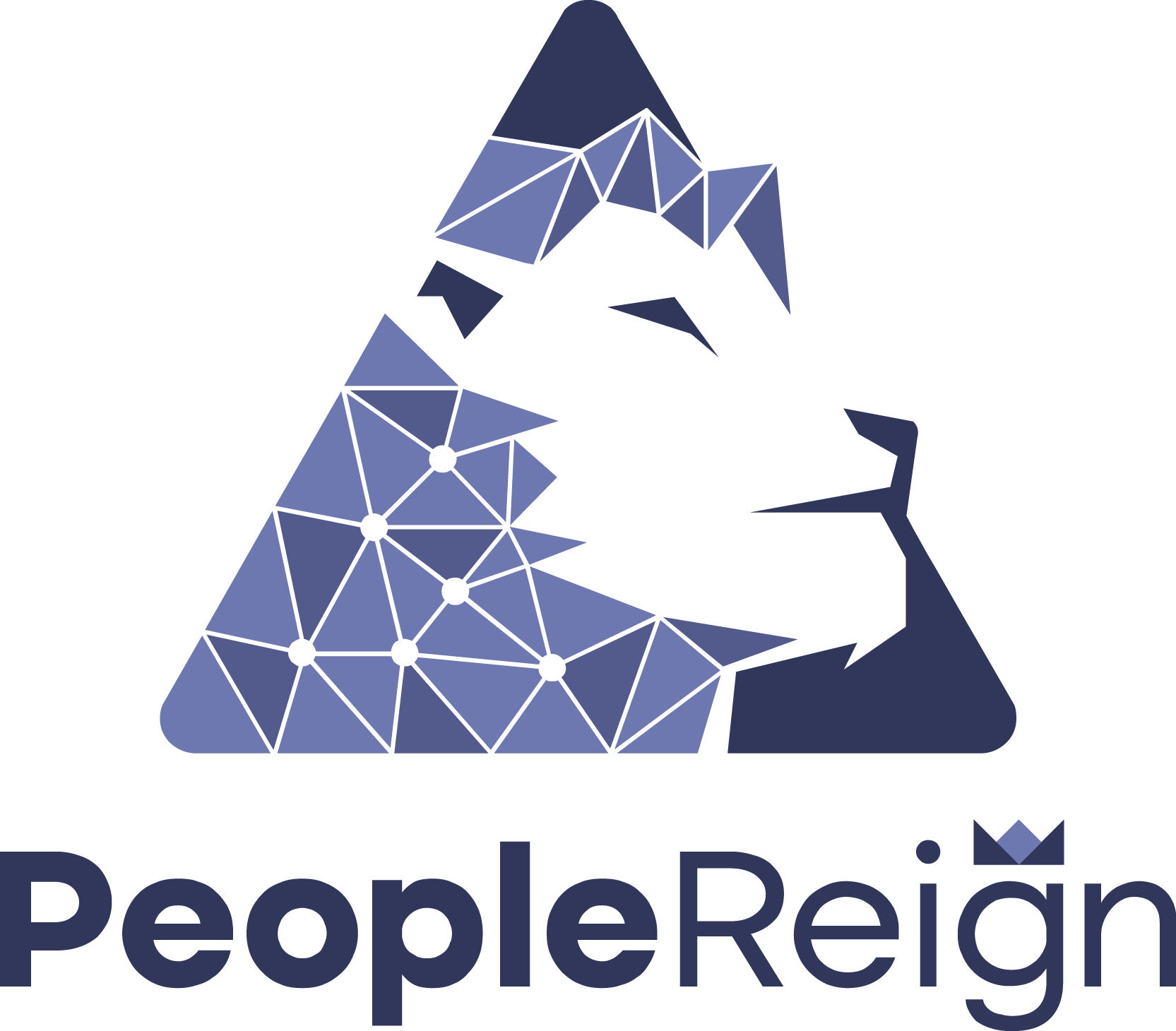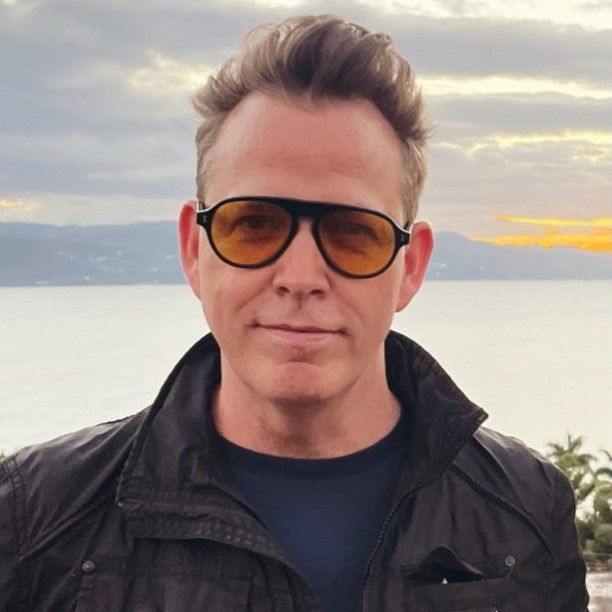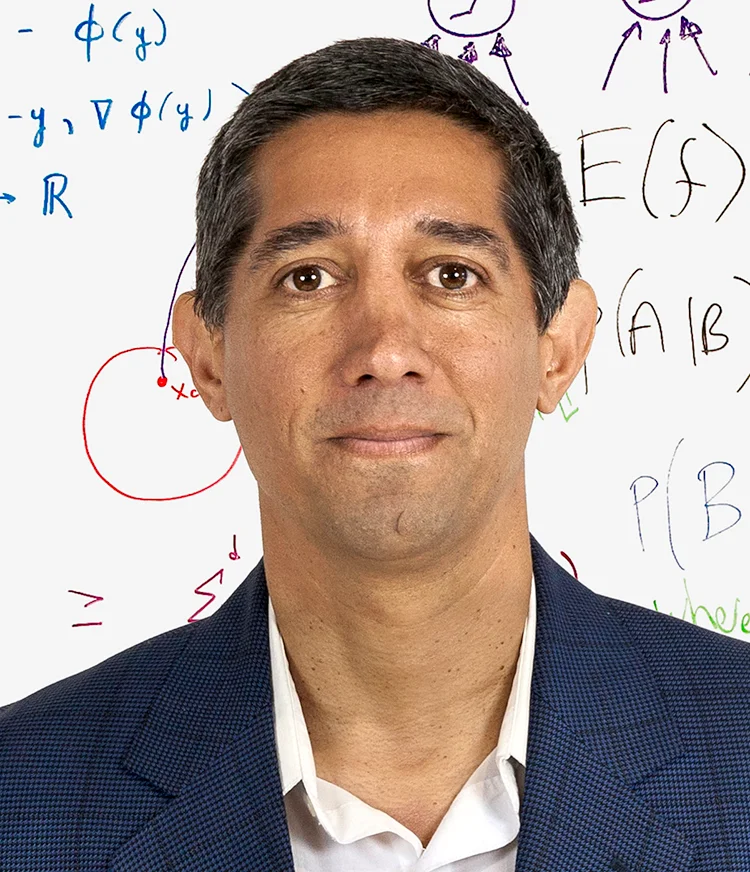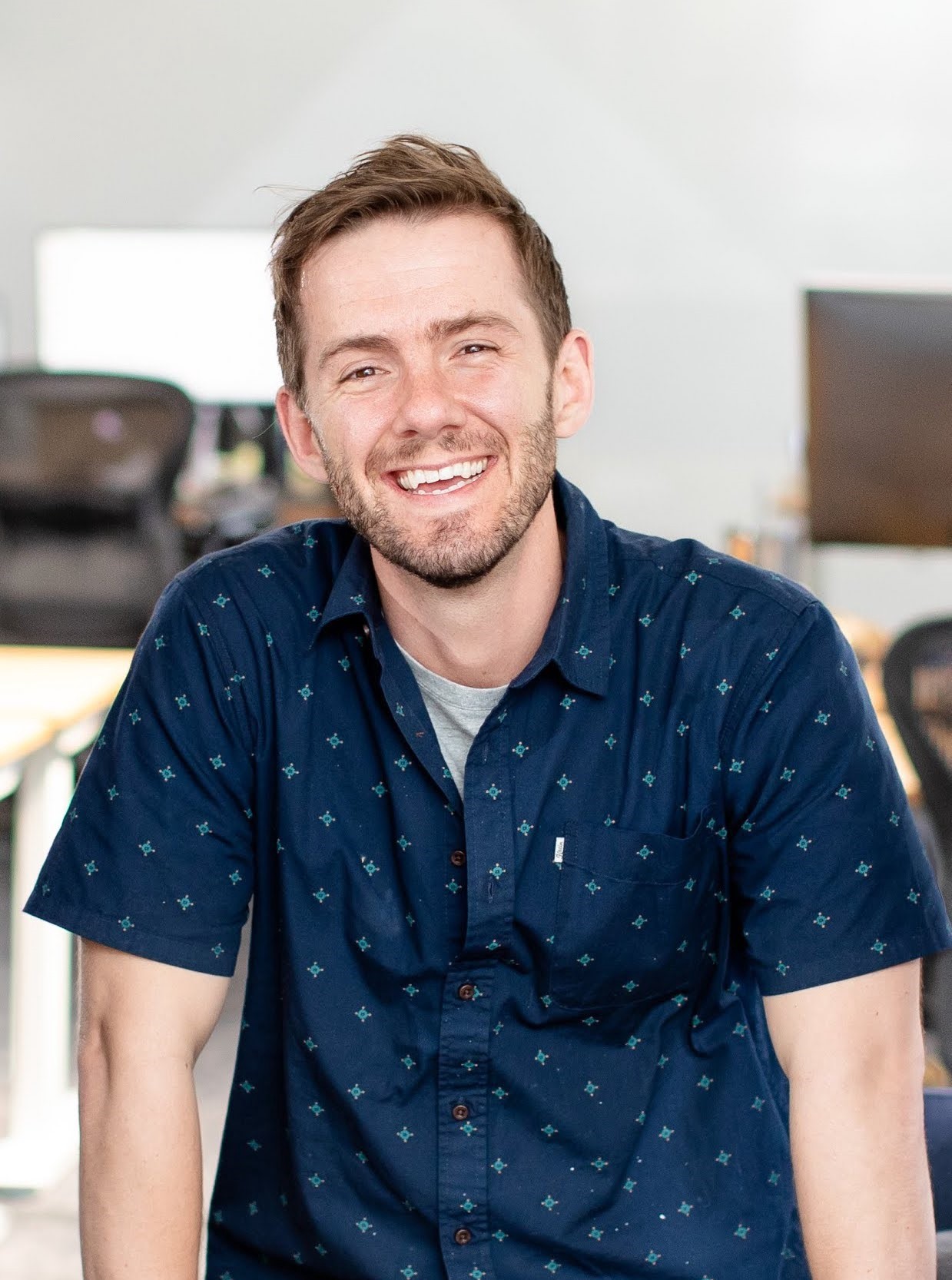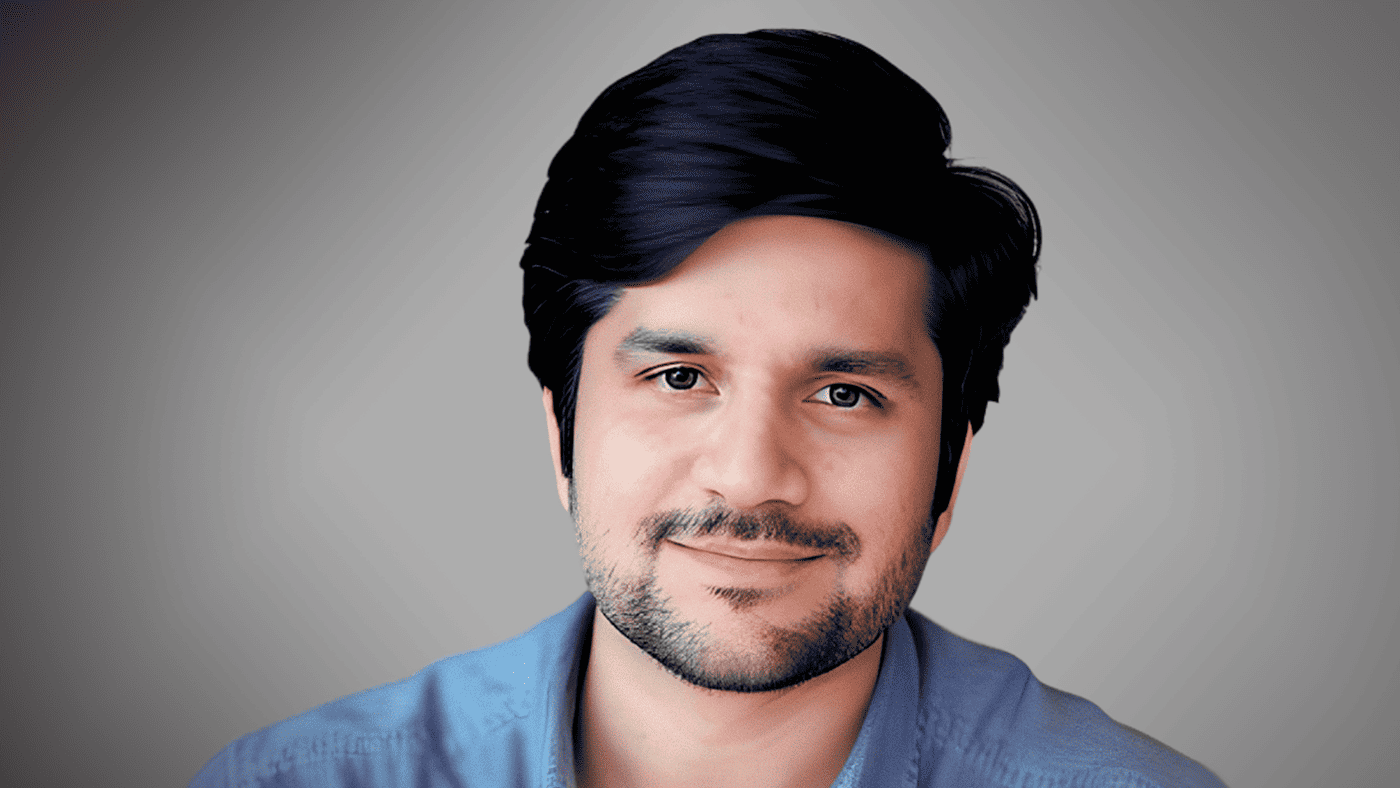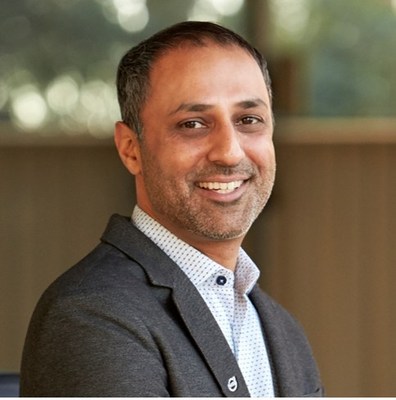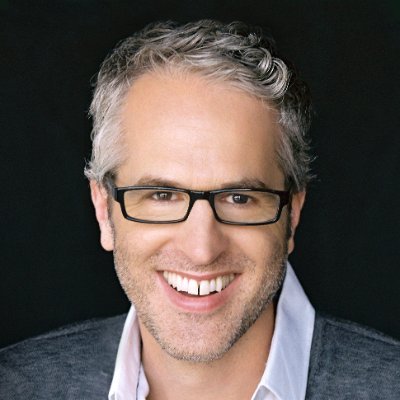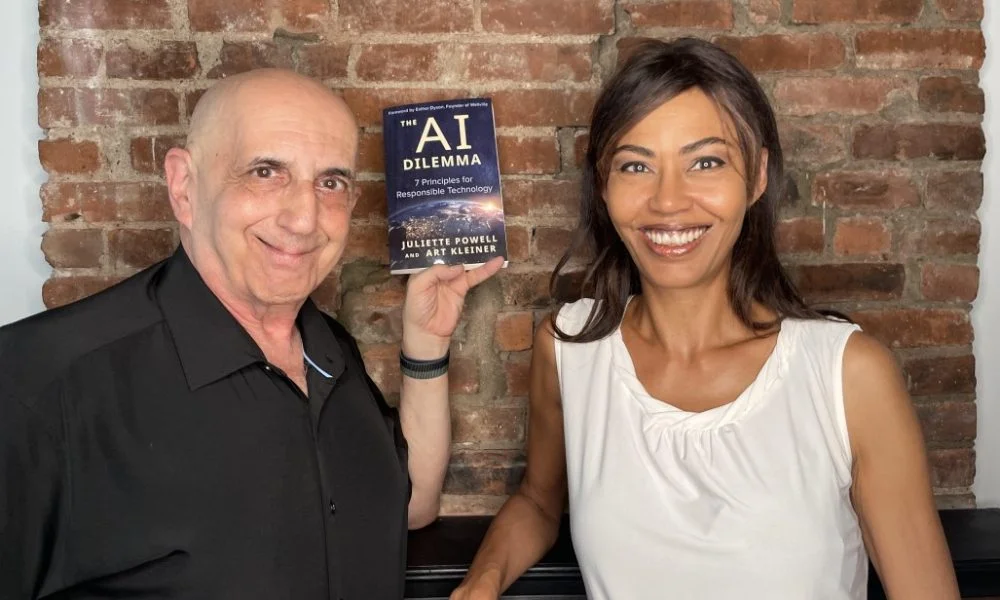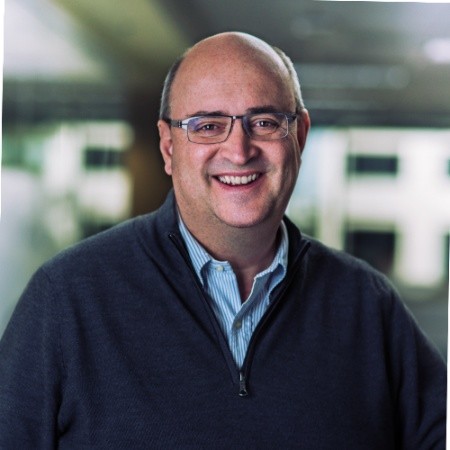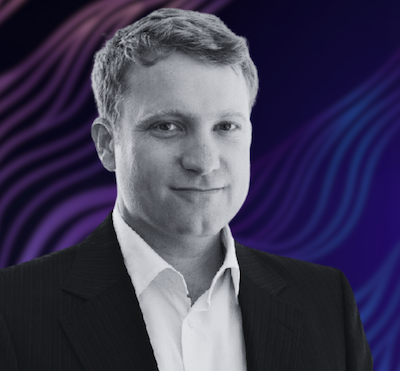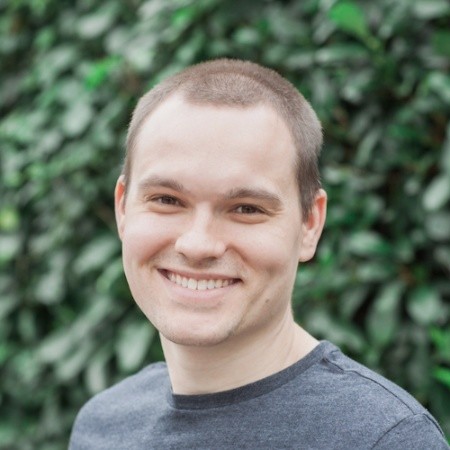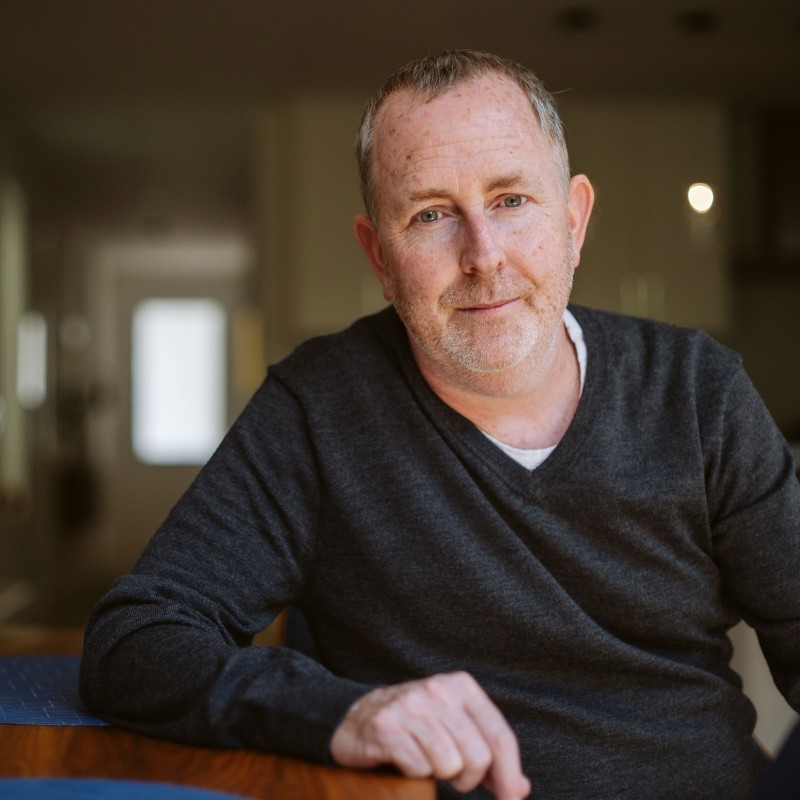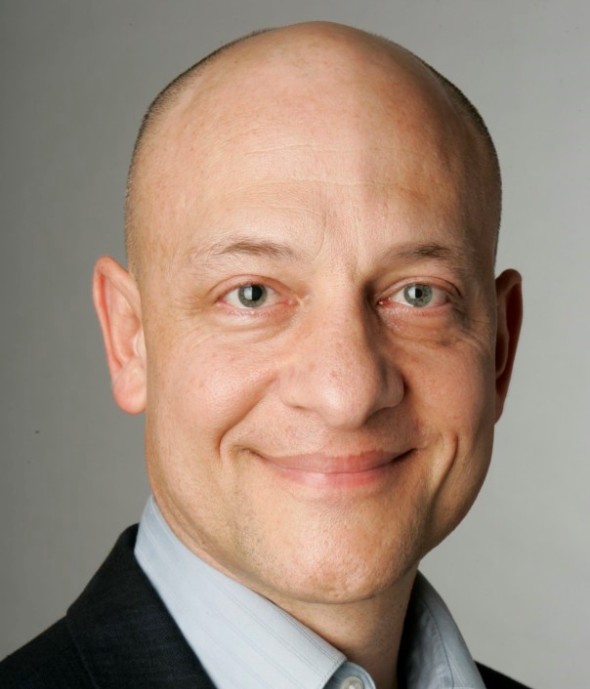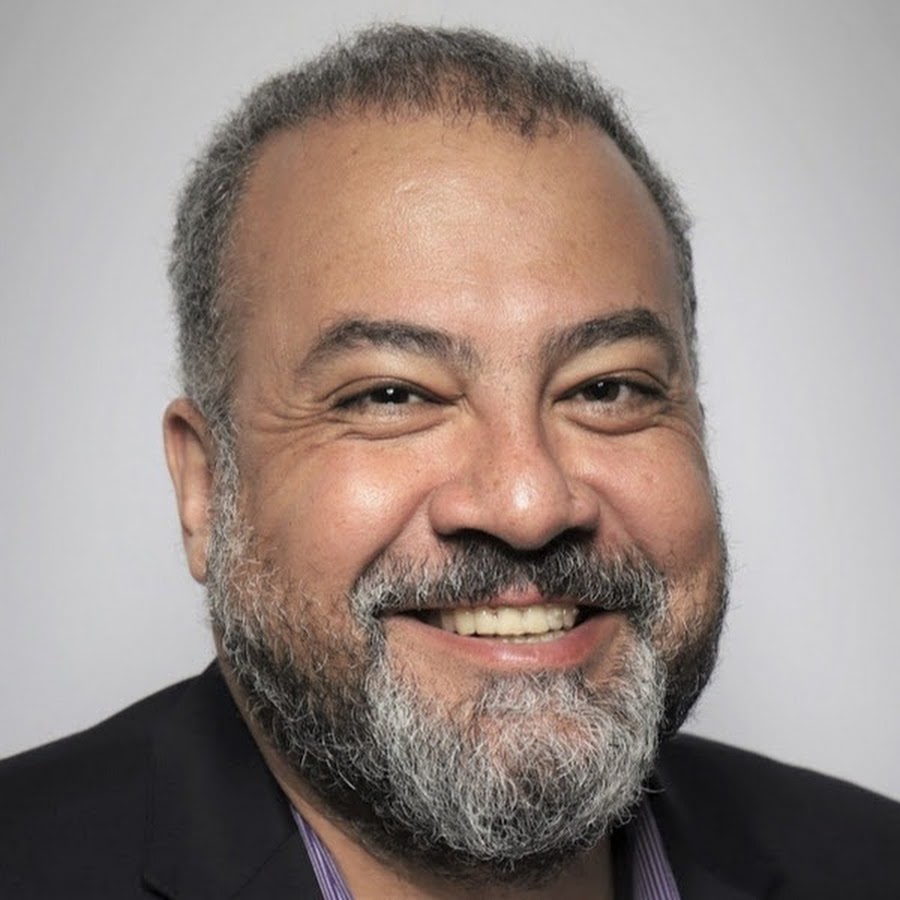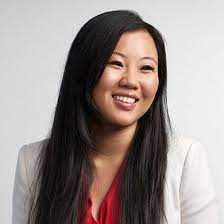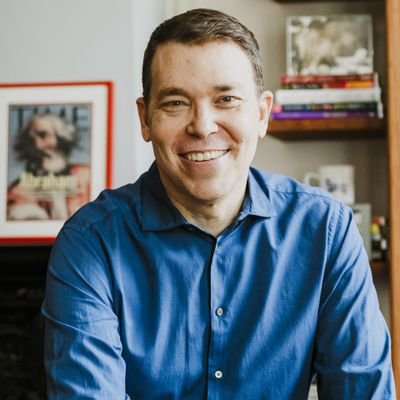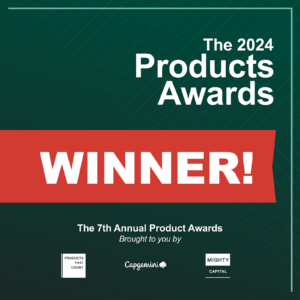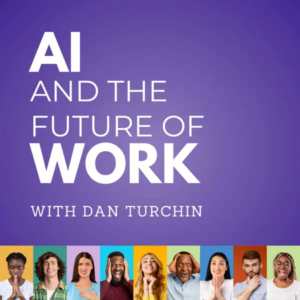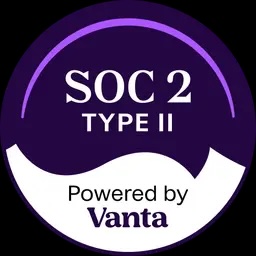AI and the Future of Work
-

Episode Number : 263
Neil Mandt is a Hollywood entrepreneur, a five-time Emmy winner, and producer of the 2022 Golden Globes. A
Show moreShow lessNeil Mandt is a Hollywood entrepreneur, a five-time Emmy winner, and producer of the 2022 Golden Globes. A pioneer in AR and VR technology, and a pro sports owner, since getting his start in Hollywood at age 10, there’s almost no award he hasn’t received, and almost no new form of media he hasn’t tested and improved.
What we cover
- In this conversation, Neil shares insights into the evolving landscape of Hollywood and the role of AI in content creation and consumption.
- Neil discusses the potential of AI to democratize content creation, enabling individuals to produce high-quality movies and TV series with minimal resources.
- We delve into the challenges and opportunities presented by AI in the entertainment industry, including the gamification of user engagement and personalized content experiences.
- Neil emphasizes the importance of embracing AI tools for content creators to stay competitive and adapt to changing consumer preferences.
- Neil highlights the transformative potential of augmented reality (AR) and virtual reality (VR) technologies in enhancing the content consumption experience.
- Neil provides valuable insights into the skills required for content producers to thrive in a future where AI-driven, interactive storytelling becomes the norm.
- And much more.
Additional resources
- Neil’s site — Neilmandt.com
- Course on making it in media and entertainment — https://neilmandt.com/course
- Other episodes you might enjoy — https://aiandthefutureofwork.buzzsprout.com/520474/14689727-babak-hodjat-cto-of-ai-at-cognizant-on-creating-siri-and-the-evolution-of-ai
-

Episode Number : 262
Babak is the CTO of AI at Cognizant, the 34 billion market cap provider of tech services with
Show moreShow lessBabak is the CTO of AI at Cognizant, the 34 billion market cap provider of tech services with more than 350, 000 global employees. He’s the former co-founder and CEO of Sentient, a business responsible for the core technology behind the world’s largest distributed artificial intelligence system. Before co-founding Sentient, Babak co-founded and was the CTO and a board member of Dejima where he developed the foundational technology that ultimately became Apple’s Siri.
He’s the primary inventor of Dejima’s patented technology. Babak has 31 granted or pending patents, is a published author, and is one of the most respected thought leaders in AI. He holds a PhD in machine intelligence from Kyushu University in Fukuoka, Japan.
In our conversation, we discuss:
- The recent executive order on AI regulation issued by the Biden administration, exploring its key themes such as the development of a national registry for foundational large language models and safety test result sharing by vendors.
- Babak shares insights into the challenges and engineering intricacies involved in developing and scaling AI systems, emphasizing the importance of understanding the fundamental differences between large language models and human intelligence.
- The concept of responsible AI and the urgent need for defining unambiguous ethical standards, with Babak expressing concerns about AI potentially being used for destructive or malicious purposes in the wrong hands.
- Babak’s experience as a pioneer in developing foundational technologies for Siri
- The limitations and expectations surrounding large language models shed light on the challenges of fine-tuning and reinforcing these models, as well as the misconceptions related to their learning capabilities during interactions.
- The concept of active ontology and its role in the early development of Siri, highlights the revolutionary approach that focused on modeling functionality and ontology first, offering insights into the evolution of natural language technology over the past 25 years.
-

Episode Number : 261
Richie Cotton and his co-host Adel have published over 150 episodes of the DataFramed podcast with some amazing
Show moreShow lessRichie Cotton and his co-host Adel have published over 150 episodes of the DataFramed podcast with some amazing guests. Richie’s also a data evangelist for DataCamp and a data scientist by training. He helps train DataCamp students and has been instrumental in the company’s success. DataCamp has trained data teams at more than 2,500 companies, including 80 percent of the Fortune 100. Richie has degrees in Math from the University of Warwick and the University of York.
In our conversation, we discuss:
- The Evolving Role of Data Scientists: Richie Cotton shares insights into the changing landscape of data science and how the role of data scientists is expected to transform in the next decade, emphasizing the increasing accessibility of powerful tools.
- Ethical Considerations in AI: we delve into the ethical implications of artificial intelligence, exploring the responsibility of data scientists and AI practitioners in addressing issues such as bias, transparency, and privacy in their work.
- Future Skills for Data Scientists: Richie discusses the essential technical skills for data scientists, including the ongoing debate between Python and R, and highlights the importance of staying adaptable as technology evolves.
- AI’s Impact on Business Operations: we explore the potential impact of AI on various industries, focusing on business operations and efficiency, providing valuable insights for professionals looking to harness AI for strategic advantages.
- Predictions for Artificial General Intelligence (AGI): Richie shares intriguing perspectives on the timeline for achieving artificial general intelligence, citing predictions that AGI might become a reality in the 2030s and discussing the potential implications of such advancements.
- Teaching and Learning Data Science at Scale: we shed light on Richie’s experience at DataCamp, where he has been instrumental in teaching data science to hundreds of thousands of individuals, highlighting the platform’s mission to make data science education accessible globally.
Additional resources
- Listen to Richie’s podcast — https://www.datacamp.com/podcast
- Other episodes you might enjoy — https://aiandthefutureofwork.buzzsprout.com/520474/14341487-navrina-singh-founder-ceo-of-credo-ai-discusses-ai-governance-ethics
-

Episode Number : 260
Matt Martin is on a mission to help the world make time for what matters. He founded Clockwise
Show moreShow lessMatt Martin is on a mission to help the world make time for what matters. He founded Clockwise in 2016 to fix the time problem.
Since then, he and the team have raised 76 million from exceptional investors, including Greylock, Coatue, Accel, Bain Capital Ventures, and a common investor, the Slack Fund. More than 15, 000 organizations run Clockwise. Matt was also an engineering leader at Relate IQ before Salesforce acquired it for $390 million in 2014.
In our conversation, we discuss:
- Interesting ways to improve your productivity
- New developments in GPT-4 supporting productivity
- Challenges of time management and the impact of AI in reshaping scheduling practices, emphasizing the importance of tools like Clockwise in optimizing work schedules
- Lesson in entrepreneurship from Matt
- How AI can be leveraged to make your work more fulfilling
- Much more
-

Episode Number : 259
Prasad Kawthekar is the Co-Founder & CEO of Dashworks, an all-in-one AI search assistant. It enables users to find
Show moreShow lessPrasad Kawthekar is the Co-Founder & CEO of Dashworks, an all-in-one AI search assistant. It enables users to find any document, message, or email and to accelerate a team’s productivity. With over 40+ integrations, Dashworks enables teams to find and organize their internal knowledge across apps from one place and leverage their collective expertise.
In our conversation, we discuss:
- The historical evolution of enterprise search tools
- The challenges to enterprise search adoption: such as API integration complexities persist, hindering widespread adoption
- The role of Generative AI in search
- Limitations of current AI models and what the future holds for them.
- What are some considerations for future AI development?
- The potential of retrieval-augmented generative AI (RAG) in providing accurate and factual responses, while also acknowledging its limitations and potential for further evolution
Additional resources:
- Visit Dashworks: https://www.dashworks.ai/
- Another episode you might like: https://aiandthefutureofwork.buzzsprout.com/520474/14464391-dr-eric-siegel-founder-of-machine-learning-week-on-6-steps-to-usher-in-successful-ml-projects
-

Episode Number : 258
Atif has blazed trails in Silicon Valley and the Fortune 500 for over 25 years. After rising through
Show moreShow lessAtif has blazed trails in Silicon Valley and the Fortune 500 for over 25 years. After rising through digital native companies like Amazon, Yahoo!, and AOL, Atif held C-suite roles at McDonald’s, Volvo, and MGM Resorts. He oversaw thousands of employees as a global P&L, transformation, and innovation leader.
Rafiq was the first Chief Digital Officer in the history of the Fortune 500, a pioneering role he held at McDonalds, and he rose to the President level in the Fortune 300. While leading business units, teams, and growth for companies, Atif has built a large following as one of today’s top management thinkers. Over 500,000 people follow his ideas about management and leadership on LinkedIn, where he is a Top Voice, and his newsletter Re:wire has over 100,000 subscribers. Atif has also been nominated
Atif is passionate about helping companies push boldly into the future. He accomplishes this through Ritual, a software app revolutionizing how teams innovate and problem-solve, and through his work as keynote speaker, Board member, and CEO advisor.
Listen and learn
- What’s broken about the decision-making process in large companies
- What is the decision sprint process
- How will team formation/team structure change as a result of AI?
- How do we measure the quality of the output of a decision sprint?
- What are the smartest ways to engage generative AI in the decision sprint process?
- How do you reasonably deal with the fear of AI replacing your job?
- Much more
Resources
— Buy the book — https://www.decisionsprint.com/
— Ritual — https://www.ritual.work/
-

Episode Number : 257
Dr. Eric Siegel is a leading consultant and former Columbia University professor who helps companies deploy machine learning.
Show moreShow lessDr. Eric Siegel is a leading consultant and former Columbia University professor who helps companies deploy machine learning. He is the founder of the long-running Machine Learning Week conference series and its new sister, Generative AI World, the instructor of the acclaimed online course “Machine Learning Leadership and Practice – End-to-End Mastery,” executive editor of The Machine Learning Times, and a frequent keynote speaker. He wrote the bestselling “Predictive Analytics: The Power to Predict Who Will Click, Buy, Lie, or Die,” which has been used in courses at hundreds of universities, as well as “The AI Playbook: Mastering the Rare Art of Machine Learning Deployment.”
Eric’s interdisciplinary work bridges the stubborn technology/business gap. At Columbia, he won the Distinguished Faculty award when teaching the graduate *computer science* courses in ML and AI. Later, he served as a *business school* professor at UVA Darden. Eric has appeared on numerous media channels, including Bloomberg, National Geographic, and NPR, and has published in Newsweek, HBR, SciAm blog, WaPo, WSJ, and more.
Listen and learn
- How he’s progressed in the field of machine learning over 30 years
- 6-step process to usher in machine learning programs from conception to deployment
- What 3 things non-technical people in business should know about how machine learning works & delivers value
- How to know when to use classical machine learning vs generative AI to solve a data problem
- How to mitigate the impact of human bias in shaping AI
-

Episode Number : 256
Juliette Powell is the founder and managing partner of Kleiner Powell International [KPI], a New York City-based consultancy.
Show moreShow lessJuliette Powell is the founder and managing partner of Kleiner Powell International [KPI], a New York City-based consultancy. As a consultant at the intersection of responsible technology and business, she has advised large companies and governments on how to deal with the accelerating change underway due to AI-enabled technological innovation coupled with shifting social dynamics and heightened global competition. She’s also on the faculty at New York University and teaches in the Interactive Telecommunications Program.
Art Kleiner is a writer, lecturer, and consultant with a background in management, interactive media, corporate environmentalism, scenario planning, and organizational learning. He is a co-author (with Pete Senge et al.) of the best-selling Fifth Discipline Fieldbook, The Dance of Change, and Schools That Learn; and author of Who Really Matters: The Core Group Theory of Power, Privilege, and Success. Since 1986, he has taught in New York University’s Interactive Telecommunications Program.
Juliette and Art co-authored a new book, The AI Dilemma: 7 Principles for Responsible Technology.
Listen and learn
- How Juliette and Art started their careers
- The Principles of Responsible Technology
- What could happen if AI became sentient?
- How can we prevent AI from reinforcing negative biases and discrimination?
- How people and organizations can practice better ethics when leveraging AI?
- What will it take to engrain more ethical, equity-oriented thinking into business education?
- Much more
-

Episode Number : 255
Dave Kellogg is an advisor, director, consultant, angel investor, and blogger focused on enterprise software startups. He’s the executive-in-residence
Show moreShow lessDave Kellogg is an advisor, director, consultant, angel investor, and blogger focused on enterprise software startups. He’s the executive-in-residence (EIR) at Balderton Capital and the principal of his own eponymous consulting business.
He brings an uncommon perspective to startup challenges having 10 years’ experience at each of the CEO, CMO, and independent director levels across 10+ companies ranging in size from zero to over $1B in revenues.
Dave also authors the Kellblog which covers topics related to starting, leading, and scaling enterprise software startups including strategy, marketing, positioning, messaging, management, go-to-market, SaaS metrics, and venture capital financing.
Listen and learn
- How Dave did with last year’s predictions
- What’s ahead for the venture capital ecosystem in a post ZIRP environment
- How CIOs are investing in automation
- What to expect from the big LLM vendors
- What’s ahead for AI and copyright protection in 2024
- And much more…
References in this episode…
- Kellblog — https://kellblog.com/
- Amr Awadallah, Vectara CEO, on AI and the Future of Work
-

Episode Number : 254
Navrina Singh is the Founder and CEO of Credo AI, a Governance SaaS platform empowering enterprises to deliver
Show moreShow lessNavrina Singh is the Founder and CEO of Credo AI, a Governance SaaS platform empowering enterprises to deliver Responsible AI. A technology leader with over 18+ years of experience in Enterprise SaaS, AI and Mobile, Navrina has held multiple product and business leadership roles at Microsoft and Qualcomm.
Navrina and the team have been on a mission to help organizations create AI that adheres to the most ethical standards since March 2020. Credo has raised over $13 million from an impressive list of investors that includes Decibel Partners, Sands Capital Ventures, and the AI Fund, among others. Navrina is a member of the national AI advisory committee and is a world Economic Forum global leader. Prepare to be inspired.
-

Episode Number : 253
Adam Wenchel is the CEO of Arthur, a company with a platform that gives you an immediate comprehensive
Show moreShow lessAdam Wenchel is the CEO of Arthur, a company with a platform that gives you an immediate comprehensive AI performance solution across LLMs, Computer Vision, Tabular Data, and NLP.
Adam and the team have been making AI observable for almost 5 years with Arthur. Arthur has raised over $60 million from a legendary group of investors including Index Ventures, Greycroft Partners, Work-Bench, and others. An equal list of impressive customers they’ve served includes Humana and Plaid, among others.
-

Episode Number : 252
Wipro is one of the largest providers of tech and tech services in the world with more than
Show moreShow lessWipro is one of the largest providers of tech and tech services in the world with more than 250,000 employees. It was started in 1945 and is now the third largest software company in India with a market cap of more than $27B.
We’re lucky to be joined today by the leader driving Wipro’s technology vision. Subha Tatavarti joined Wipro as Chief Technology Officer in March 2021 after a distinguished career in tech leadership roles at companies like Walmart and PayPal where she led the product, data, and infrastructure teams. Subha holds a Masters in Computer Science. She’s an avid hiker and enjoys trail running and books on philosophy.
-

Episode Number : 251
We’ve had amazing unicorn CEOs recently on this podcast but today’s a first. Wade Foster, CEO and co-founder of Zapier grew his company to a $5B valuation in 2021 on a $1.3M raise in 2012. Let that sink in. The power of product-market fit and listening to your customers is impossible to overstate.
Wade and his co-founders Bryan and Mike launched Zapier in 2012 as part of the YC S12 batch.
The company has grown to more 800 employees in 40 countries and the product is used by 2.2M businesses and integrates more than 5,000 apps that have been used to create more than 25 million zaps, or automated workflows.
Show moreShow lessWe’ve had amazing unicorn CEOs recently on this podcast but today’s a first. Wade Foster, CEO and co-founder of Zapier grew his company to a $5B valuation in 2021 on a $1.3M raise in 2012. Let that sink in. The power of product-market fit and listening to your customers is impossible to overstate.
Wade and his co-founders Bryan and Mike launched Zapier in 2012 as part of the YC S12 batch.
The company has grown to more 800 employees in 40 countries and the product is used by 2.2M businesses and integrates more than 5,000 apps that have been used to create more than 25 million zaps, or automated workflows.
Listen and learn…
- Wade’s humble path from an internship in Columbia, MO… to a $5B unicorn
- A simple problem: the Zapier origin story
- The Zap that started it all…
- Voice-first Zaps? Maybe!
- The future of the “citizen developer”… no-code interfaces + enterprise security
- Why all the new GenAI apps will create more need for Zaps
- The Zapier LLM architecture
- How to find product-market fit… from an expert
- Creating a company that’s a verb: how “Zapier” got its name
- Wade reflects on his success and the entrepreneurial journey
- What’s ahead for Wade and Zapier
References in this episode…
-

Episode Number : 200
Fountain has raised $225M to date most recently through a $100M series C last June from an amazing list of investors including B Capital Group, SoftBank, DCM, and Uncork Capital.
Show moreShow lessSean Behr is the CEO of Fountain, the company transforming the hiring process for hourly workers. Sean and the team have helped more than 80M applicants in 75 countries at places like Stitch Fix, sweetgreen, and gopuff. Fountain has raised $225M to date most recently through a $100M series C last June from an amazing list of investors including B Capital Group, SoftBank, DCM, and Uncork Capital.
Sean joined Fountain as CEO in 2020 after founding fleet infrastructure platform Stratim, serving as SVP of Adap.tv through its acquisition by AOL, and holding various management roles at Shopping.com.
Listen and learn…
- How Sean is creating opportunities for frontline workers around the world
- What’s uniquely challenging about hiring frontline vs. knowledge workers
- How long before robots will replace human frontline workers
- The ethical implications of using AI in hiring
- What biases are embedded in the hiring process… without AI
- Why the future of hiring… is more human thanks to AI
References in this episode…
-

Episode Number : 199
Dr. John Boudreau is a luminary in the future of work academic community. He has published more than 50 books and articles. His scholarly research is published in Management Science, Academy of Management Executives, Journal of Applied Psychology, and Personnel Psychology. Features on his work have appeared in Harvard Business Review, The Wall Street Journal, Fortune, Fast Company and Business Week, among others.
Show moreShow lessDr. John Boudreau is a luminary in the future of work academic community. He has published more than 50 books and articles. His scholarly research is published in Management Science, Academy of Management Executives, Journal of Applied Psychology, and Personnel Psychology. Features on his work have appeared in Harvard Business Review, The Wall Street Journal, Fortune, Fast Company and Business Week, among others.
Dr. Boudreau helped establish and then directed the Center for Advanced Human Resource Studies (CAHRS), at Cornell University, where he was a professor for over 20 years, before his current position as Research Director for the Center for Effective Organizations at the University of Southern California.
Thanks to friend of the podcast David Creelman for the intro to Dr. Boudreau!
Listen and learn…
- How Dr. Boudreau got his start as an academic in HRTech
- What inspired Dr. Boudreau to make work life better for employees everywhere
- How Dr. Boudreau defines work (the most enlightened definition we’ve heard)
- How to build high-functioning teams
- Why diverse teams don’t perform better
- How alternative work and workers are redefining the labor force
- Why jobs don’t equal work and degrees don’t equal jobs
- What does it mean to be human when your colleague is a bot
- Why ATM machines led to more human bank tellers being hired
- About the rise of internal talent marketplaces
- Which skills AI will never automate
References in this episode…
-

Episode Number : 198
Dr. Amr Awadallah is a luminary in the world of information retrieval. He’s the CEO and cofounder of Vectara, a company that is revolutionizing how we find meaning across all languages of the world using the latest advances in Deep Neural Networks, Large Language Models, and Natural Language Processing. He previously served as VP of Developer Relations for Google Cloud. Prior to joining Google in Nov 2019, Amr co-founded Cloudera in 2008 and as Global CTO. He also served as vice president of product intelligence engineering at Yahoo! from 2000-2008. Amr received his PhD in EE from Stanford University, and his Bachelor and Masters Degrees from Cairo University, Egypt.
Show moreShow lessAmr and I met on a genAI panel and everything he said was both insightful and contrarian. Immediately, I knew I wanted to introduce him to you. Amr is a legend in the search space who, by the way, also founded Cloudera which went public in 2017 at a valuation of over $5B.
Dr. Amr Awadallah is a luminary in the world of information retrieval. He’s the CEO and cofounder of Vectara, a company that is revolutionizing how we find meaning across all languages of the world using the latest advances in Deep Neural Networks, Large Language Models, and Natural Language Processing. He previously served as VP of Developer Relations for Google Cloud. Prior to joining Google in Nov 2019, Amr co-founded Cloudera in 2008 and as Global CTO. He also served as vice president of product intelligence engineering at Yahoo! from 2000-2008. Amr received his PhD in EE from Stanford University, and his Bachelor and Masters Degrees from Cairo University, Egypt.
Listen and learn…
- How Amr discovered the power of “talking to software” via LLMs while at Google
- About the history of new computing modalities
- About the current state of generative AI
- The technical explanation for hallucination in LLMs
- How do we mitigate bias in LLM models and prevent copyright infringement
- Why a semantic understanding of queries is the next frontier in search
- The challenge faced by search providers of making money incorporating ads into LLM-based answers
- How “grounded search” will fix the hallucination problem
- What is a “fact” in the era of ChatGPT?
- How long before we have “antivirus sofware for fact-checking” genAI propaganda
- How should AI be regulated… and who is responsible for AI regulation
- The next big idea in genAI Amr and I are ready to fund
- Amr’s advice to entrepreneurs… and to himself
References in this episode…
-

Episode Number : 197
Today’s guest is one of the most respected thought leaders in the HR and HRTech space. Josh Bersin’s name is synomous with HR thought leadership. He first started covering the space in 2001 before selling Bersin & Associates to Deloitte in 2012. His current namesake company, The Josh Bersin Company, hosts the popular annual conference Irresistible and is a prolific publisher of content related to the future of work, talent management, corporate learning, and leadership.
Show moreShow lessToday’s guest is one of the most respected thought leaders in the HR and HRTech space. Josh Bersin’s name is synomous with HR thought leadership. He first started covering the space in 2001 before selling Bersin & Associates to Deloitte in 2012. His current namesake company, The Josh Bersin Company, hosts the popular annual conference Irresistible and is a prolific publisher of content related to the future of work, talent management, corporate learning, and leadership.
Josh is also the author of the popular book Irresistible: The Seven Secrets of the World’s Most Enduring, Employee-Focused Organizations, which was published in 2022. Oh, and he also hosts a great podcast. I always enjoy his candid commentary on HRTech.
Listen and learn…
- The single employee behavior that most impacts productivity
- What people practice surprised Josh most about what distinguishes leading from lagging companies
- How “taking care of people” saved many companies during the pandemic
- The HRTech innovation that improves the employee experience most
- Why employees took back power from employers… and insisted on better tools
- Where are there opportunities to innovate in HRTech
- How AI “meets people in the flow of work”
- How talent intelligence is assisting HR leaders
- Why employees shouldn’t feel threatened by AI
- Why what Josh calls “organizational ingenuity” is more important than having the best tech skills
- The future of work, according to Josh
References in this episode…
-

Episode Number : 196
Joanne Chen began her investing career at Foundation in 2014 and has sourced and advised an incredible group of companies including Tonkean, Tubi, and CaptivateIQ. Joanne received her BS in EE and CS from Cal and her MBA from the University of Chicago. She’s also a popular TEDx speaker.
Show moreShow lessToday’s guest is a General Partner at Foundation Capital, one of the most iconic venture capital firms in the world. Foundation has found and funded companies like Netflix, Solana, Jasper, and the list goes on.
Joanne Chen began her investing career at Foundation in 2014 and has sourced and advised an incredible group of companies including Tonkean, Tubi, and CaptivateIQ. Joanne received her BS in EE and CS from Cal and her MBA from the University of Chicago. She’s also a popular TEDx speaker.
Today we get a master class on how the best are adapting to one of the most challenging venture investing climates in decades. Joanne and I met on a panel discussion a few months back . I’ve been looking forward to introducing her to our community.
Listen and learn…
- Joanne’s perspective on the euphoria surrounding GenAI
- What’s different about investing in AI post-ChatGPT
- Why AI tools are increasing the pace of innovation
- The difference between crypto and AI investing
- What responsible AI means to Joanne
- Joanne’s advice to “AI entrepreneurs” pitching venture investors
- How long before AI will take Joanne’s job
References in this episode…
-

Episode Number : 195
Tom is the only person to be elected to both the Cable Television Hall of Fame and the Wireless Hall of Fame, which led President Obama to proclaim him “the Bo Jackson of telecom.” Additionally, Tom is an award-winning author, a sought after speaker about topics ranging from leadership to net neutrality, and a visiting fellow at The Brookings Institution.
Show moreShow lessTom Wheeler served as the 31st Chairman of the Federal Communications Commission after being appointed to the role by President Obama in November 2013. His chairmanship has been described as “The most productive Commission in the history of the agency.”
Prior to that, he was a venture capitalist and, among other roles, the CEO of the Cellular Telecommunications & Internet Association (CTIA) where we first met in 2001. He is the only person to be elected to both the Cable Television Hall of Fame and the Wireless Hall of Fame, which led President Obama to proclaim him “the Bo Jackson of telecom.” Additionally, Tom is an award-winning author, a sought after speaker about topics ranging from leadership to net neutrality, and a visiting fellow at The Brookings Institution.
Listen and learn:
- Why today’s Digital Age is reminiscent of the early 20th century Gilded Age
- How owners of today’s digital pathways make rules that govern privacy and safety
- What does history teach us about how can we take back control of our data from Big Tech
- How to make capitalism work for everyone
- Why AI is triggering an awareness of the impact of Big Tech on our lives
- What’s different about regulatory models in the digital era
- Why we need a new agile, digital-first agency to regulate Big Tech
- How to regulate Big Tech without stifling innovation
References in this episode:
-

Episode Number : 194
A longtime columnist at the New York Times, Bruce now writes the popular newsletter THE NONLINEAR LIFE. He has appeared in numerous publications, including The New Yorker, The Wall Street Journal, Harvard Business Review, and Gourmet, where he won three James Beard Awards. A former circus clown, he has been the subject of a Jay Leno joke and a JEOPARDY! question, and his face appears on a postage stamp in the Grenadines.
Show moreShow lessBRUCE FEILER is one of America’s most thoughtful voices on contemporary life. He is the author of seven New York Times bestsellers, including LIFE IS IN THE TRANSITIONS, THE SECRETS OF HAPPY FAMILIES, and COUNCIL OF DADS. His three TED Talks have been viewed more than four million times, and he teaches the TED Course HOW TO MASTER LIFE TRANSITIONS. His latest book, THE SEARCH: Finding Meaningful Work in a Post-Career World (May 2023), is a bold new roadmap for finding meaning and purpose at work.
A longtime columnist at the New York Times, Bruce now writes the popular newsletter THE NONLINEAR LIFE. He has appeared in numerous publications, including The New Yorker, The Wall Street Journal, Harvard Business Review, and Gourmet, where he won three James Beard Awards. A former circus clown, he has been the subject of a Jay Leno joke and a JEOPARDY! question, and his face appears on a postage stamp in the Grenadines.
Listen and learn…
- Bruce’s search for meaning in the face of setbacks and challenges
- How to reconcile our complicated relationship with work and our personal search for meaning
- Bruce’s “three lies and a truth about work”
- How to identify what brings you meaning
- The four historical changes in the nature of work
- Why it’s important to “ignore the lessons of your parents”
- The one thing we know about AI and the future of work
References in this episode…
